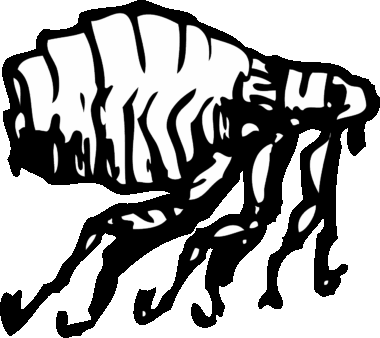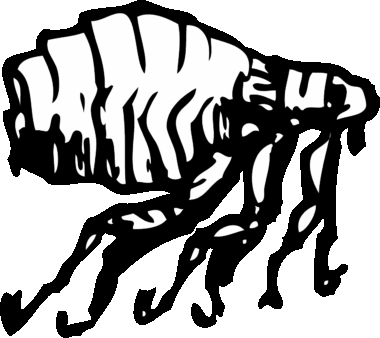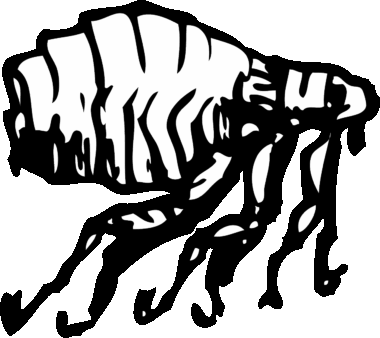Seasonal Trends in Emerging Parasite Infections in Dogs: What to Expect
As we observe seasonal changes, dog owners need to be aware of emerging parasite threats. The rise in temperatures introduces various parasites, such as fleas and ticks, that can significantly affect a dog’s health. These parasites not only cause discomfort but can also transmit serious diseases. Maintaining vigilance is essential for pet owners as these parasites become more active in spring and summer. It is vital to regularly check your furry companions for signs of infestations, particularly when engaging in outdoor activities. In warmer months, preventive treatments should be emphasized to protect dogs from these threats. Products designed specifically for flea and tick prevention can greatly reduce the risk of transmission. Owners should consult with their veterinarians to determine the most suitable preventive measures for their pets. This proactive approach will help ensure that your dog stays healthy and free from the discomfort caused by these parasites. Additionally, awareness of seasonal trends can guide the timing of preventive measures for optimal effectiveness. Vigilance, education, and timely action are the keys to successful dog parasite control.
Parasite control strategies must adapt to emerging threats that come with changing seasons. An increase in humidity and warmth can foster environments conducive to the survival of various parasites. Heartworms, for example, are transmitted by mosquitoes and can lead to severe health issues in dogs. As mosquito populations rise in the warmer months, so does the risk of heartworm infection. It’s essential for dog owners to understand the life cycle of these parasites to enhance preventive measures. Regular testing and year-round heartworm prevention is advised for all dogs, regardless of lifestyle. Besides mosquitoes, other parasites, including giardia and hookworms, can also proliferate during specific seasons. Understanding the local environment and seasonal factors can help pet owners make informed decisions regarding parasite control. Additionally, educating oneself about the behavior of these parasites can further help in prevention. For example, certain areas may experience peak infestations during specific months, depending on climate. Consultation with veterinary professionals can provide tailored advice based on your dog’s lifestyle and breed, which will be beneficial in managing these emerging threats efficiently.
Awareness of emerging parasites is crucial to ensuring the well-being of your pet. Tick-borne diseases, such as Lyme disease, have become increasingly prevalent, posing severe health risks for dogs. These diseases often manifest through symptoms such as fever, fatigue, or joint pain, urging immediate veterinary attention. Thus, timely detection and prompt intervention can prevent serious complications. Dog owners should familiarize themselves with seasonal ticks’ behavior, particularly their increase in numbers during moist, warm seasons. Routine checks for ticks after outdoor activities are essential for early detection. These should include looking through a dog’s fur, especially in hidden areas like armpits and ears. Additionally, various tick prevention products, including collars and topical treatments, are available on the market to aid in protecting pets. Always consult your veterinarian when selecting the right product, as some may be more effective based on your region. Remember, dog safety is paramount, necessitating proactive measures against all potential health threats. Your awareness and readiness can keep parasites at bay, promoting a healthy lifestyle for your canine companion and peace of mind for you.
Emerging Heartworm Risks
Heartworm disease remains a significant concern for dog owners as climate changes affect its spread. Warmer temperatures enable mosquitoes to thrive during extended periods, putting dogs at risk for infection. This disease is particularly dangerous and can lead to serious health complications, including congestive heart failure. Effective prevention strategies are crucial to reduce the risk of heartworm infection, regardless of a dog’s lifestyle, whether they are predominantly indoors or outdoors. Year-round preventive medications are recommended, as seasonal variations can lead to laxity in treatment. Monthly heartworm medications will ensure ongoing protection, although testing should occur annually to catch any early signs of infection. Additionally, being aware of environmental changes can aid in preventive planning. Dog owners should avoid areas highly populated with mosquitoes and use repellents when possible. Regular veterinary check-ups and screenings remain important to catch potential issues early. Awareness of heartworm trends, geographical variations, and accurate treatment can significantly reduce the incidence of the disease. Overall, keeping informed and consistent in care will provide the best defense against heartworm infection for your dogs.
Responsible pet ownership involves staying updated on parasite trends, particularly with the rise of severe cases linked to nematodes such as hookworms. This emerging threat can cause gastrointestinal issues, anemia, and weight loss in infected dogs. Hookworms thrive in warm environments and can be contracted through contaminated soil, emphasizing the importance of practicing cautious outdoor behavior. Regular deworming protocols are vital for maintaining your dog’s health, especially in spring and summer when these parasites are most active. Environmental factors such as humidity and temperature directly influence hookworm activity. Dog owners residing in warmer climates should pay close attention to these seasonal patterns. Additionally, educating yourself about the behavior of these parasites can aid in prevention. Regular stool checks can help identify any infections early on and facilitate timely treatment. Ensuring your pet’s hygiene, access to clean water, and proper sanitation in their living space can minimize exposure to hookworms and other intestinal parasites. Therefore, understanding these emerging threats helps foster a proactive defense against gastrointestinal infections and supports overall canine health.
Dog owners must also be cautious about the threat posed by emerging protozoan parasites, particularly giardia. Giardia parasites can significantly impact a dog’s intestinal health, leading to severe diarrhea and dehydration, which can be life-threatening if unaddressed. This protozoan thrives in moist environments, making certain seasons riskier for infection. Giardia can easily spread through contaminated water sources, heightening the risks for dogs that frequently swim or drink from outdoor water sources. Pet owners should be vigilant regarding water hygiene, ensuring that pets only drink safe, clean water. Regular vet check-ups can help identify giardia infections early. The threat of giardia requires ongoing vigilance and is often accompanied by changes in diet to support recovery. Proper sanitation, such as cleaning up after pets and maintaining clean living environments, is essential in reducing the transmission of giardia. Furthermore, educating fellow pet owners about this parasite can create an additional layer of protection. Staying informed and adapting to changing dynamics in emerging parasite threats will help ensure the overall health and well-being of your beloved canine companions.
Conclusion: Staying Vigilant
In conclusion, being proactive and well-informed about seasonal trends in emerging parasite infections is vital for dog owners. As we have seen, various factors influence these trends, from environmental changes to lifestyles of pets. Regular consultations with veterinarians can help detect potential problems early and inform appropriate preventive measures. Vaccination programs and nutritional considerations play an essential role in supporting overall dog health, enhancing resilience against infections. Education on parasite transmission patterns and seasonal timing can greatly reduce the impact of infestations. Utilizing effective prevention products and ensuring adherence to treatment schedules are necessary for comprehensive parasite control. As seasons transition, pet owners should always assess their pets for signs of parasites and discuss any concerns with their veterinarians. Recognizing the importance of vigilance in combating emerging threats is crucial for maintaining the health of your canine companions. Ultimately, a combined approach of education, consultation, and timely action can significantly protect dogs from these emerging parasite infections. With proper care and precautions, you can provide a happier, healthier life for your pets, while keeping threats at bay.
Enhancing public awareness about these emerging parasite threats is essential for improving outcomes in dog health. As we continue to see shifts in climates and environments, more attention must be directed toward educating dog owners on the potential risks associated with emerging parasites. Engaging communities in discussions about seasonal challenges and appropriate preventive measures will foster informed pet ownership. Understanding local ecology and the seasonal trends of parasites will empower pet owners to make actionable choices for the health of their dogs. Furthermore, collaboration with veterinary professionals can aid in spreading awareness and best practices. Community outreach programs can serve as valuable resources for disseminating knowledge on preventing parasitic infections. The more informed pet owners are, the better prepared they will be to take action against potential threats. Periodic veterinary health fairs or educational sessions can bolster knowledge sharing while emphasizing the importance of parasite prevention. Each dog’s well-being depends on the combined efforts of owners and professionals working together. Sustainable change in dog health will stem from a collective commitment to health education and vigilance against parasites in an evolving climate.





